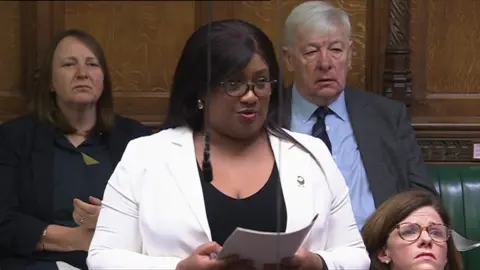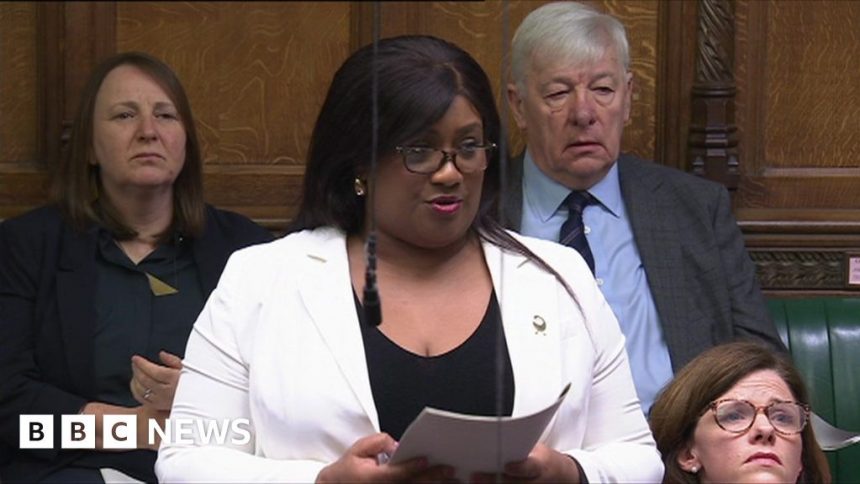MP calls for ban on auction sales of human remains
 House of Commons
House of CommonsAn MP has has called for an end to the “depraved” practice of human remains being sold in auction houses and on social media.
Labour’s Bell Ribeiro-Addy said she had been told of human remains frequently auctioned “disguised as modified items or replicas”.
She told MPs that this included a “foetal skeleton posed under a glass dome, a human thigh bone turned into a cane, a human jawbone necklace and the varnished skull of a six-year-old”.
Ribeiro-Addy, who is the MP for Clapham and Brixton Hill in London, said a loophole in the law allowed for the sales and asked the deputy prime minister to commit the government to end the practice.
Standing in for Sir Keir Starmer at Prime Minister’s Questions, Angela Rayner said the account was “horrifying” and that while the display of human remains was regulated by the Human Tissue Authority, “it does not cover sales or purchases”.
The deputy prime minister said she would ensure a meeting with Riberio-Addy to discuss the issue.
Riberio-Addy told the BBC that the “commodification of human remains perpetuates a dark legacy of colonialism, exploitation and dehumanisation”.
“We need to see decisive action to end such practices and respectfully repatriate stolen remains to their rightful resting places,” she said.
She said she would continue to push the issue and that “restitution is a key pillar of any programme of reparative justice”.
The BBC reported in October that an auction house in Oxfordshire had been forced to withdraw human and ancestral remains from a sale following criticism from native groups and museums.
Among the items initially listed were shrunken heads from the Jivaro people of South America, skulls from the Ekoi people of West Africa and a 19th century horned human skull from the Naga people of India and Myanmar.
Laura Van Broekhoven, who is the director of the Pitt Rivers Museum in Oxford, said she was “outraged” at the auction and praised the decision to remove the remains from sale.
Ribeiro-Addy said in the Commons that alongside auction houses, remains were being sold on social media sites like Instagram, Facebook, Ebay, Etsy and Gumtree.
She said the remains were “often from indigenous communities in Africa and Asia stolen during colonial expeditions” and said had been told of the incidents by the British Association for Biological Anthropology and Osteoarchaeology (BABAO).
BABAO says the sale of human remains for commercial gain is “unethical”, and has warned that social media platforms are “ideal hosts for a wide variety of illicit activity” in the sale of remains.
The Human Tissue Act only bans “commercial dealings” of human tissue in the context of medical transplantation, rather than sale as artefacts.
In addition, it only covers remains under 100 years old, meaning many historic remains would not be in scope.
However, the display of remains does require a license. BABAO says many “antique” skeletons are actually under 100 years old as exports of remains to medical schools continued well into the 20th century, meaning unlicensed display of them would be unlawful.
The BBC has approached BABAO for comment.







